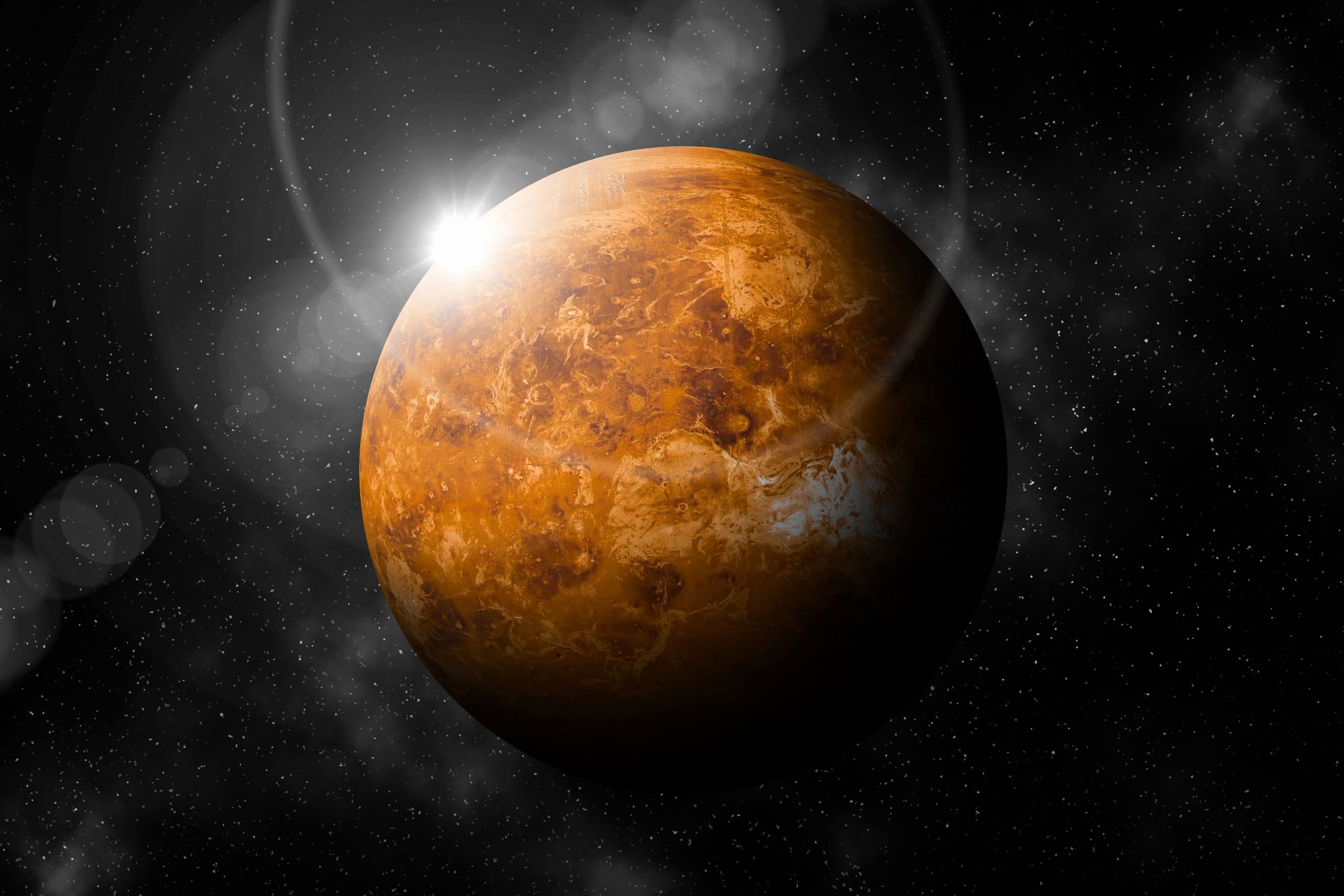New Research Suggests Venus’ Atmosphere Has Seen A Spike In Levels Of Deuterium Relative To Hydrogen, Possibly Changing Scientists’ View Of The Planet As Barren And Inhospitable

We think of Venus as a barren planet with a hostile environment that is incapable of supporting life. However, an unexpected discovery may change this current view of Venus forever. In Venus’ atmosphere, scientists have observed a spike in the level of deuterium relative to hydrogen.
Deuterium and hydrogen are isotopes of each other, which basically means they are different forms of the same element.
They contain equal numbers of protons but varying amounts of neutrons in their nuclei. As a result, they have different atomic masses, but their chemical properties stay pretty much the same.
“Venus is often called Earth’s twin due to its similar size,” Hiroki Karyu, a co-author of the study and a researcher at Tohoku University, said.
“Despite the similarities between the two planets, it has evolved differently. Unlike Earth, Venus has extreme surface conditions.”
The altitudes on Venus have 150,000 times less water than comparable altitudes on Earth. Due to the extreme temperatures and pressures beneath the thick layers of clouds on Venus, liquid water cannot exist in significant quantities.
But it may not have always been like that. It is believed that Venus and Earth once had similar HDO/H20 ratios since both planets formed in a hot region where water could not condense in the early solar system.
Later, water-rich asteroids likely from the outer asteroid belt were thought to have delivered water to the worlds, resulting in similar deuterium-to-hydrogen (D/H) ratios on both planets. The idea is further supported by comparable levels of other elements, such as carbon and nitrogen.
After looking at data collected from the Solar Occultation in the Infrared (SOIR) instrument on the Venus Express space probe, scientists realized that the ratio of HDO was now 120 times higher than H20 in Venus’ atmosphere.
WithanTor – stock.adobe.com – illustrative purposes only
Sign up for Chip Chick’s newsletter and get stories like this delivered to your inbox.
“This enrichment is primarily due to solar radiation breaking down water isotopologues in the upper atmosphere, producing hydrogen (H) and deuterium (D) atoms,” the scientists wrote. “Since H atoms escape into space more readily due to their lower mass, the HDO/H2O ratio gradually increases.”
Furthermore, they determined that the concentration of water molecules, both H2O and HDO, increased with altitude, specifically between 43 and 68 miles above Venus’ surface. At these heights, the ratio of HDO to H2O is more than 1,500 times higher than what is present in Earth’s oceans.
The findings suggest that Venus’ atmosphere contains a lot more deuterium-rich water than Earth’s due to significant differences in atmospheric processes.
These processes might be controlled by climate mechanisms involving sulfuric acid aerosols, which make up most of Venus’ clouds.
According to the scientists, the aerosols form right above the clouds, where temperatures decrease to below the sulphurated water dew point. This leads to the development of deuterium-enriched aerosols.
The particles then rise to higher altitudes, where increased temperatures cause them to evaporate. Consequently, more HDO is released than H2O. Finally, the vapor travels downward, starting the cycle all over again.
By studying the changes in the altitudes and how they affect HDO and H2O ratios, scientists can gain a better understanding of how Venus has evolved and how much water the planet has lost over time.
Welcome to Billionaire Club Co LLC, your gateway to a brand-new social media experience! Sign up today and dive into over 10,000 fresh daily articles and videos curated just for your enjoyment. Enjoy the ad free experience, unlimited content interactions, and get that coveted blue check verification—all for just $1 a month!
Account Frozen
Your account is frozen. You can still view content but cannot interact with it.
Please go to your settings to update your account status.
Open Profile Settings